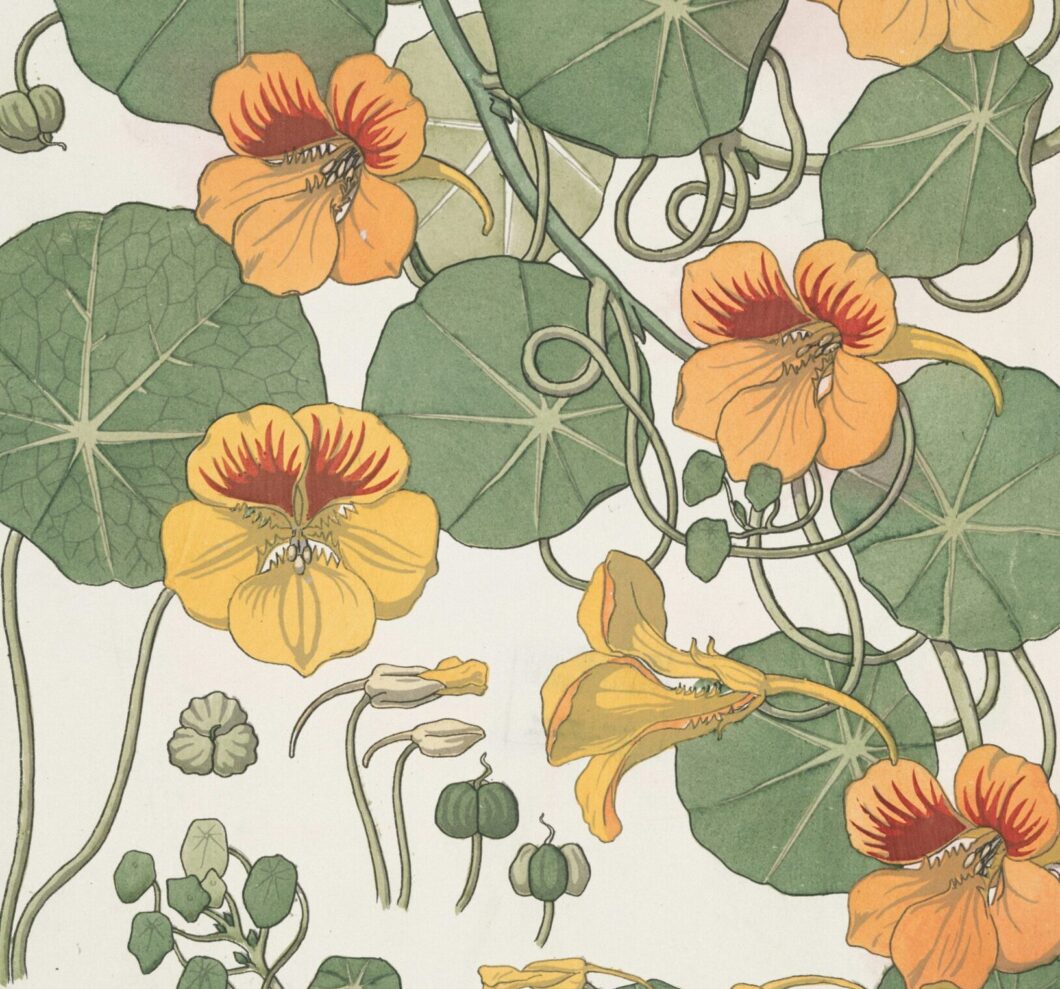I.
In the dust and the dirt
of the orchard floor, there was
a beautiful red beetle
— and it did not move.
Amid a little world’s scatter
and frenzy, here was something
— a word for silent
comes to mind:
unmoving. A letter
uninflected. Not a breath,
no release: just a consonant
— still.
He dug a finger into the dust and
pushed the little red beetle in.
A brush of dirt and then
the bright red beetle was gone.
II.
I see them: gold and waiting,
an interrupted stillness behind the house.
Tilt their petals up, and you’ll see it:
the flower’s little knife.
They were poisonous,
these flowers, or so I would tell myself. Poisonous
enough that my finger on the blade
might make me dead.
Of course,
I had not yet formally recognized
violence. The flowers
were poison, but I would not be killed.
It was only another branch to grab.
III.
On death, I have heard it said, “Tread lightly,
For all the world is graves.”
That poem came too late. I
stepped where people should not.
Death, and being dead, and dying
were only new and unusual turns of phrase.
Death was a new thing that started happening that day, like
maybe a rash, or a cut, a bruise,
something burning I might pick up from the trees.
The little dagger. Bees. Milk
seeping out from where I tore a fig from its stem:
These things might make me dead.
Death might be on the lawn,
coiled in bright sunlight, because death was
pigeon skulls
and a butterfly under a rock.
Lie down in the dust
and look:
Death is fast, beautiful things finally still,
things that do not run when seen,
that do not at the sight of me
disappear.
IV.
I did not heed any poet’s warning, for I
have not grown up at all.
You see, I came upon a cemetery:
I took a shortcut when prompted by rocks shifting in a wall.
I saw the sea of flowers and white stone, uneven rows
in the deep red soil. I stepped inside.
I inquired about his grave, so I found it.
But the opening, I forgot.
—It was an accident.
It was a trespass.
I left with work unfinished, a duty
unfulfilled.
I had been warned: Tread lightly. I was taught:
Here are the rituals you the living do for the dead,
for they do not know they are dead
And then where will you be?
A child, skinned knees, daggers in hand, a straw basket of
butterflies finally still enough to study. You are
Death’s only friend. No one else treads but you.
Imagine dying, your heart sings. Your grandfather might bury you,
like his turn in a clapping rhyme. Dust, soil.
Everyone tells you about dying all the time.
Heaven, hell, sin, and
finishing all the food on your plate.
V.
His fingers move the dust over the
red beetle. And I miss it: It was so pretty,
so bright where everything
was brown and shade.
I ask, “Can we bring it back?”
but he laughs, and he says,
“No. It is dead.”
It is dead!
I was never in doubt.
I meant, “Can you brush
all that dirt off
its bright red shell?
I want to see it again.”
Photo by The New York Public Library on Unsplash

